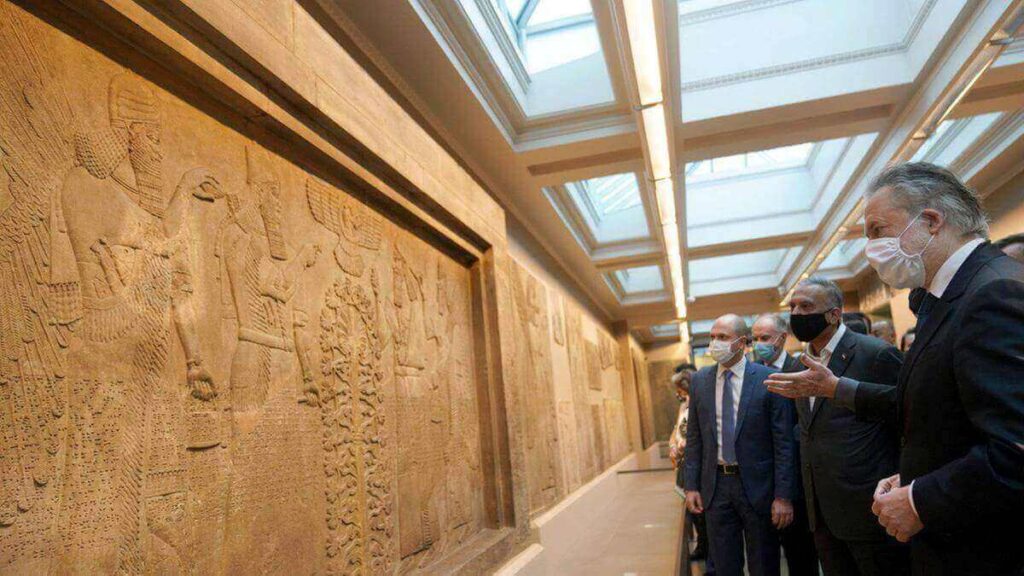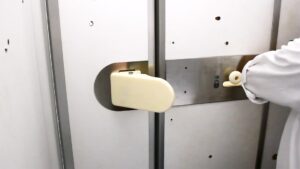


1. repatriation (v)
to send or bring someone, or sometimes money or other property, back to the country that he, she, or it came from
2. cuneiform (adj)
of a form of writing used for over 3,000 years until the 1st century B.C. in the ancient countries of Western Asia
3. antiquities (n)
an object that was created a very long time ago
4. excavated (v)
to remove earth that is covering very old objects buried in the ground in order to discover things about the past
5. inscribed (v)
to write words in a book or carve (= cut) them on an object
6. seizure (n)
the action of taking something by force or with legal authority
Britain to return 5,000 ancient Iraqi artefacts

Britain is to return 5,000 ancient artefacts to Iraq by next year, it was announced on Friday, as Iraqi Prime Minister Mustafa Al Kadhimi visited London.
It marks the largest repatriation of Iraqi antiquities and comprises 5,000 pieces of clay tablets that were unearthed by British archaeologists nearly 100 years ago. They were excavated with a permit issued by the-then Iraqi government from the ancient city of Ur in southern Iraq. The tablets were at the British Museum with the permission of the Iraqi authorities.
A rare Sumerian plaque dated around 2400BC, that was smuggled out of Iraq, illegally listed for auction in 2019 and seized by police in London, will also return soon. It was taken from an ancient Sumerian temple and depicts a seated male figure. The plaque’s rarity is said to be derived from its quality.
The Iraqi Minister of Culture has allowed it to be displayed at the British Museum for a short time before its repatriation.
On Friday morning, Mr Kadhimi toured the British Museum with director Hartwig Fischer and John Whittingdale, the minister of state for media and data. The prime minister viewed the Mesopotamia gallery, which traces the history of the ancient civilisations that lived thousands of years ago in what is now Iraq.
Last year, the British Museum handed over 156 inscribed tablets to Iraq from the early Sumerian era, and in early 2019 UK authorities returned a Babylonian cuneiform stone worth hundreds of thousands of pounds back to Iraq after its seizure in 2012.
Resource: https://www.thenationalnews.com/world/mena/britain-to-return-5-000-ancient-iraqi-artefacts-1.1098462

- What can we learn from antiquities?
- How much do you value your cultural heritage?
- What parts of today’s culture do you want future generations to see?
“It is one of those lessons that every child should learn: Don't play with fire, sharp objects, or ancient artifacts.










